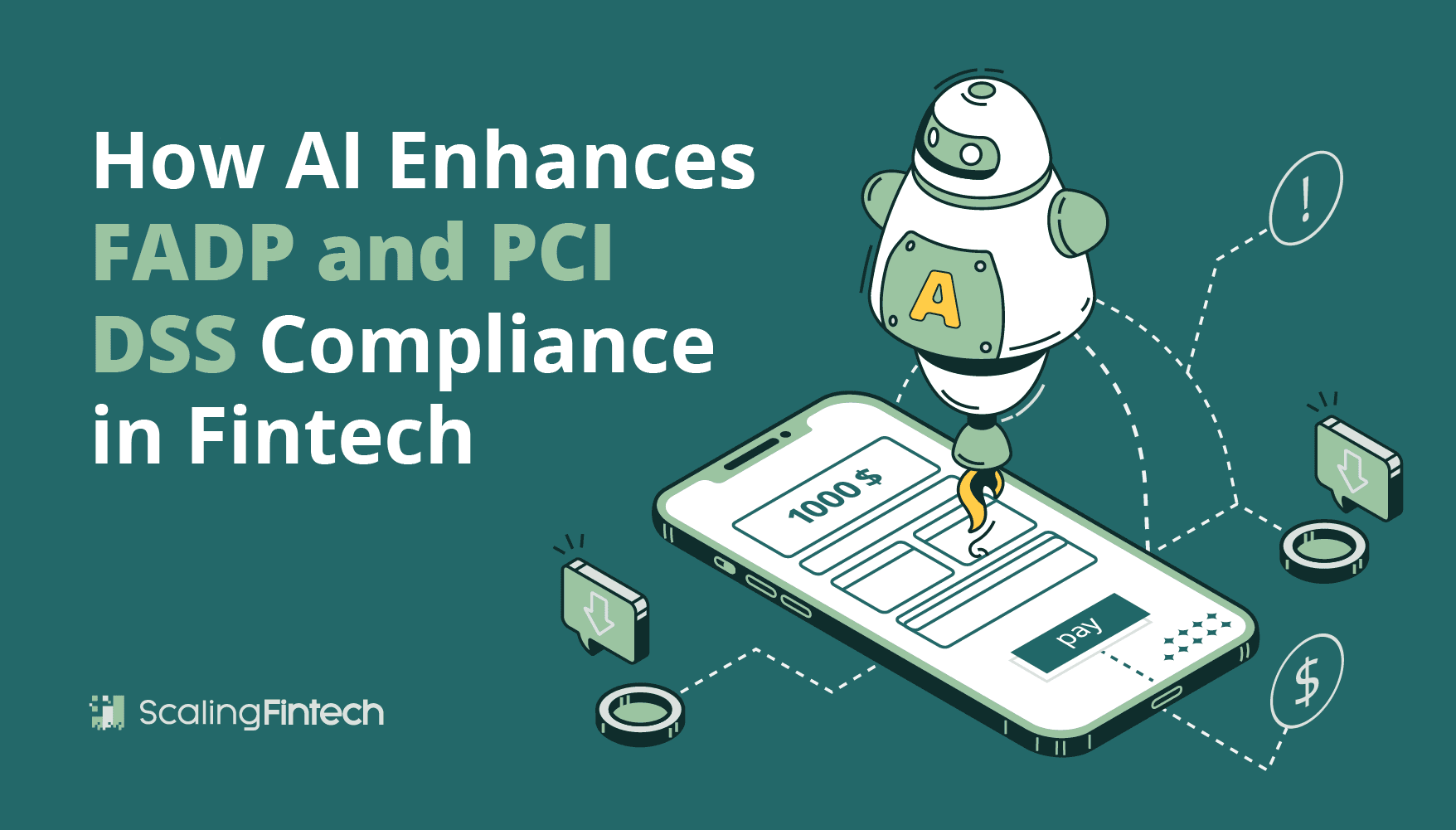Discover how AI streamlines RBI compliance in fintech advertising, ensuring transparency, reducing risks, and driving growth with actionable strategies and insights.
Managing compliance with the Reserve Bank of India (RBI) is a growing challenge for fintech companies in the realm of financial services. With regulatory demands constantly evolving, organizations face the daunting task of maintaining adherence while mitigating risks such as financial penalties, reputational damage, and operational inefficiencies. Recent research shows that compliance accounts for approximately 15% of fintech operational costs. This highlights the importance of effective risk and compliance management in the financial technology sector.
Enter Artificial Intelligence (AI): AI revolutionizes how fintech firms handle RBI compliance and risk management. By automating content monitoring, analyzing risks in real-time, and simplifying reporting, AI enables companies to focus on growth while staying compliant. This approach aligns with broader industry trends, including APRA compliance standards and the emerging CPS 230 framework for operational risk management.
This blog explores the transformative role of AI in fintech advertising compliance, offering actionable strategies, examples, and tips to future-proof your operations and enhance your compliance risk management.
Understanding RBI Guidelines for Fintech Advertising
What Does RBI Regulate?
The RBI oversees India’s financial ecosystem, enforcing regulations to ensure transparency, operational security, and consumer protection. These guidelines influence fintech advertising by establishing boundaries for ethical marketing practices and maintaining financial stability. Understanding the compliance risk definition is crucial for fintech companies operating in this regulated environment.
Key RBI Advertising Compliance Requirements

- Transparency: Clear disclosure of licensing status and regulatory approvals, including any restricted ADI license conditions.
- Risk Warnings: Accurate representation of product risks and benefits to customers, addressing compliance risk examples.
- Data Privacy: Adherence to frameworks like India’s Personal Data Protection Bill and Information Technology Act.
- Digital Payment Security: Compliance with the Master Direction on Digital Payment Security Controls (2021) to safeguard payment transactions and digital wallets.
- Customer Due Diligence: Proper Know Your Customer (KYC) protocols during advertising and onboarding.
Why Compliance Matters
Failing to meet RBI requirements can lead to:
- Financial Penalties: Fines often exceed ₹2 crore for non-compliance.
- Reputation Damage: Violations erode consumer trust, affecting long-term brand equity.
- Operational Interruptions: Regulatory breaches may result in license suspension or revocation.
Action Tip: Create a compliance checklist for all campaigns to ensure they align with RBI guidelines, including disclosures and KYC compliance. This approach supports comprehensive risk and compliance management.
How AI is Reshaping RBI Compliance for Fintech Advertising
Why AI is a Game-Changer
AI automates complex compliance processes, ensuring precision and offering predictive insights. With the ability to analyze large datasets in real-time, AI helps fintechs anticipate and resolve compliance risks swiftly, enhancing overall risk management. This technology is particularly valuable in addressing compliance risk examples and supporting APRA compliance initiatives.
Applications of AI in RBI Compliance
- Automated Content Monitoring: AI systems review marketing materials for adherence to RBI guidelines, flagging inconsistencies instantly.
- Dynamic Risk Assessment: Machine learning evaluates advertising risks and highlights gaps proactively, improving compliance risk management.
- Regulatory Document Processing: Natural language processing (NLP) simplifies legal requirements, ensuring proper alignment with prudential standards and CPS 230 requirements.
- Predictive Analytics: Anticipates compliance issues and suggests solutions before they escalate, enhancing operational resilience.
- Instant Reporting: Audit-ready reports are generated instantly, cutting preparation times by 60%.
Key Benefits of AI for RBI Compliance

1. Streamlined Compliance Processes
AI automates routine tasks such as tracking regulatory changes and updating policies dynamically, improving overall compliance risk management. This approach aligns with CPS 230 operational risk management principles.
- Example: An Indian fintech reduced manual compliance monitoring by 45% using AI, allowing its teams to focus on strategic objectives and innovation.
2. Improved Accuracy and Transparency
AI systems eliminate human error, ensuring consistent adherence to RBI guidelines and enhancing regulatory compliance.
- Metrics:
- Detection accuracy improved by 30%.
- False positives were reduced by 50%.
3. Proactive Risk Management
Predictive analytics help identify risks early, ensuring campaigns stay compliant across all channels and improving operational risk management. This approach supports the objectives of CPS 230 and broader APRA compliance standards.
- Action Tip: Use AI-powered dashboards for real-time monitoring and risk identification.
4. Cost and Time Efficiency
AI reduces operational costs and accelerates campaign approvals. Industry studies estimate ₹10,000 crore in annual savings for firms leveraging AI-driven compliance in financial technology.
Overcoming Challenges in AI Adoption for Compliance
1. Algorithmic Bias
AI models may develop unintended biases based on historical data patterns.
- Solution:
- Train models on diverse datasets.
- Conduct regular audits to address biases and ensure fair risk controls.
2. Data Privacy Concerns
AI systems process sensitive customer data, requiring robust security measures and effective data management. This includes considerations for software escrow arrangements to protect critical data and code.
- Solution:
- Implement Privacy-Enhancing Technologies (PETs) for anonymization.
- Follow RBI’s data localization mandates and enhance cyber resilience.
- Utilize software escrow services to safeguard proprietary algorithms and data.
3. Lack of Transparency in AI Models
AI’s “black box” nature can complicate audits and accountability, potentially conflicting with CPS 230 requirements for operational transparency.
- Solution:
- Use Explainable AI (XAI) frameworks like SHAP for interpretable insights.
- Maintain detailed documentation of AI-driven decisions to support compliance obligations.
Best Practices for AI-Driven Compliance in Advertising
1. Align AI Solutions with RBI Guidelines
Ensure AI tools are configured to meet RBI standards, including:
- Transparent risk disclosures.
- Automated alerts for compliance violations.
- Continuous updates for new regulations and prudential standards, including CPS 230 and APRA CPS frameworks.
2. Invest in Explainable AI
Adopt interpretable AI models to build trust and meet regulatory demands, supporting compliance with CPS 230 effective date requirements.
- Example: A fintech reduced false positives by 40% after implementing XAI for fraud detection and compliance risk assessment.
3. Monitor AI Models Continuously
Regular oversight ensures AI systems adapt to evolving regulations and maintain effective risk controls, aligning with CPS230 requirements.
- Action Tip: Conduct quarterly audits to validate performance and address biases in your compliance risk management strategy.
Leveraging RegTech for RBI Compliance
Regulatory Technology (RegTech) simplifies compliance by combining automation with advanced analytics, enhancing overall risk management for financial institutions. This approach supports APRA compliance and aligns with CPS 230 operational risk management guidelines.
How RegTech Simplifies Compliance
- Real-Time Monitoring: Tracks advertising content to ensure compliance and mitigate third-party risk.
- Automated Reporting: Generates accurate, audit-ready regulatory documentation.
- Risk Assessment: Identifies vulnerabilities in marketing strategies proactively, supporting comprehensive compliance risk management.
- Example: An Indian fintech reduced compliance reporting costs by 70% using RegTech to automate audit preparation and enhance supplier risk mitigation.
Case Studies: AI Success in RBI Compliance
1. SafePay India
- Problem: Rising compliance costs and bottlenecks.
- Solution: Deployed AI for transaction monitoring and content validation.
- Results:
- 75% improvement in regulatory breach detection.
- 50% reduction in compliance costs.
2. FinEdge Solutions
- Problem: Lack of transparency in compliance audits.
- Solution: Implemented XAI to streamline reporting and build trust with regulators.
- Results:
- 30% improvement in reporting accuracy and overall compliance risk management.
Preparing for the Future: RBI and AI Regulation
Emerging Trends
- Stricter requirements for algorithmic transparency in financial technology, aligning with CPS 230 and APRA CPS frameworks.
- Greater focus on cross-border data compliance and software escrow arrangements.
- Integration of AI into RBI’s regulatory oversight mechanisms, potentially influencing restricted ADI license conditions.
Proactive Strategies
- Establish an AI governance committee to oversee compliance initiatives and ensure adherence to prudential regulation, including CPS 230.
- Use predictive analytics to adapt to regulatory changes and maintain business continuity.
- Implement software escrow solutions to protect critical assets and support operational resilience.
How Scaling FinTech Can Support RBI Compliance
Scaling FinTech specializes in AI-driven advertising solutions tailored to meet RBI compliance standards and enhance operational resilience. Our approach aligns with CPS 230 operational risk management principles and supports APRA compliance objectives.
Why Partner with Scaling FinTech?
- Precision: Tailored campaigns aligned with RBI guidelines and CPS 230 requirements.
- Transparency: Real-time compliance reporting for accountability and improved incident management.
- Growth-Centric Solutions: Maximize ROI while embedding regulatory adherence and supporting your data strategy.
Get Started Today: Schedule a free consultation with Scaling Fintech to turn RBI compliance into a competitive advantage and enhance your compliance risk management.
Conclusion
AI is changing how financial institutions deal with RBI compliance. It’s turning it from a regulatory obstacle into a valuable asset. By automating monitoring, improving accuracy, and cutting costs, fintech firms can effectively navigate the complex compliance landscape and promote innovation. This approach is in line with emerging standards like CPS 230 and supports broader APRA compliance goals.
Ready to future-proof your compliance strategy?
Contact Scaling FinTech today to discover the power of AI-driven compliance solutions. These solutions can help ensure financial stability and operational continuity.

FAQs
- What is RBI’s role in fintech advertising?
RBI ensures transparency, consumer protection, and ethical advertising practices in financial services.
- How does AI enhance RBI compliance?
AI automates content monitoring, risk assessment, and reporting. This boosts efficiency and compliance.
- What is RegTech, and how does it help?
RegTech simplifies compliance. It does this with real-time monitoring, reporting, and analytics. It supports risk management and alignment with standards like CPS 230.
- What challenges do fintechs face with AI compliance?
Key challenges are algorithmic bias, data privacy, and a lack of transparency in risk controls. Software escrow arrangements can help mitigate some of these risks.
- How can Scaling FinTech help? Scaling FinTech provides AI-driven solutions to meet RBI guidelines. They ensure compliance and growth while managing risks. They also support your licensing framework, including restricted ADI licenses.




